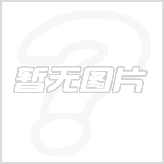2011ACCF/AHA老年高血压专家共识
《2011ACCF/AHA老年高血压专家共识》内容简介:
This document was written with the intent to be a completereference at the time of publication on the topic of managinghypertension in the elderly. Given the length of the document,the writing committee included this executive summary toprovide a quick reference for the busy clinician. Becauseadditional detail is needed, please refer to the sections ofinterest in the main text. The tables and figures in thedocument also delineate important considerations on thistopic, including the treatment algorithm in Section 4.2.2.1.
《2011ACCF/AHA老年高血压专家共识》内容预览:
End-Organ Effects
The following are highly prevalent among the elderly andassociated with poor blood pressure (BP) control: cerebro-vascular disease (ischemic stroke, cerebral hemorrhage, vas-cular dementia, Alzheimer's disease, and accelerated cogni-tive decline); CAD (including myocardial infarction [MI]and angina pectoris); disorders of left ventricular (LV)structure and function (including LVH and heart failure[HF]); cardiac rhythm disorders (atrial fibrillation [AF] andsudden death); aortic and pe**heral arterial disease [PAD])(including abdominal aortic aneurysm [AAA], thoracicaortic aneurysm, acute aortic dissection and occlusive PAD);CKD (estimated glomerular filtration rate [eGFR] 60mL/min/1.73 m2; ophthalmologic disorders (including hy-pertensive retinopathy, retinal artery occlusion, nonarteriticanterior ischemic optic neuropathy, age-related maculardegeneration, and neovascular age-related macular degen-eration); and quality of life (QoL) issues.
Considerations for Drug Therapy
Drug treatment for elderly hypertensive patients has beengenerally recommended but with a greater degree of cautiondue to alterations in drug distribution and disposal andchanges in homeostatic CV control, as well as QoL factors.However, patients in most hypertension trials were 80years of age. Pooling the limited number of octogenarians fromseveral trials mainly composed of younger patients, treatedpatients showed a reduction in both stroke and CV morbidity,but a trend toward increased all-cause mortality compared tocontrols. Thus, the overall benefits of treating octogenariansremain unclear despite epidemiological evidence that hyper-tension remains a potent CV risk factor in this age group.Results of HYVET, documenting reduced adverse outcomeswith antihypertensive drugs in persons 80 years of age,requires updating previous recommendations.
点击下载***:《2011ACCF/AHA老年高血压专家共识》
本站所注明来源为"爱爱医"的文章,版权归作者与本站共同所有,非经授权不得转载。
本站所有转载文章系出于传递更多信息之目的,且明确注明来源和作者,不希望被转载的媒体或个人可与我们
联系zlzs@120.net,我们将立即进行删除处理
热点图文
-
严重颅脑损伤病人肠内营养支持有何特点?
严重颅脑损伤病人多存在神志异常、昏迷、躁动等,使之不能正常饮食,并给鼻饲置...[详细]
-
严重颅脑损伤病人PN支持有何特点?
鉴于颅脑损伤后病人的特点,胃肠外营养常被选作早期营养支持的手段。[详细]

